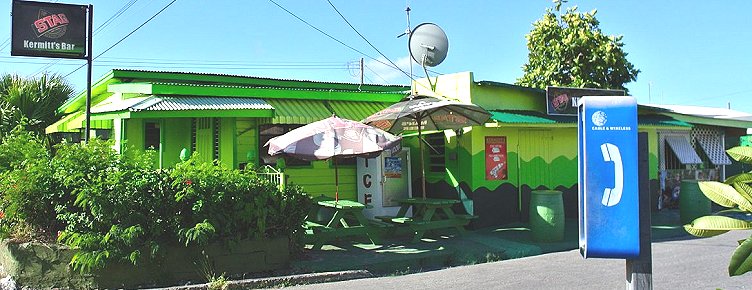Christmas is a special time for reconnecting before we reset for the start of a brand new year. As I look back on 2016, what was meant to be a Golden Jubilee year didn’t quite turn out the way most of us might have wanted. I won’t rehash all the details here but you know what I mean.
 As we approach 2017, there is always the hope of turning a new page but the pragmatist in me (that little cartoon devil, if you like) keeps nagging away asking why would you expect anything different for 2017?
As we approach 2017, there is always the hope of turning a new page but the pragmatist in me (that little cartoon devil, if you like) keeps nagging away asking why would you expect anything different for 2017?
The spectre of a pending election is sufficient motivation for us to hope that things would get better. What we must be mindful of, is to meaningfully discern the difference between the temporary fixer upper which the Government will attempt and that which we know will benefit Barbados over the next 25 years.
Given the financial strain that most Barbadians are feeling, it is hard to ask people to be forward looking when the last nine years have been a complete disaster. Nevertheless, this in my view on what the focus ought to be, lest we fall into the fixer upper trap, only to be left disappointed at the end of 2017, hoping that 2018 turns out better.
Economics is often referred to as the dismal science but we are in fact a very hopeful bunch because those of us not steeped in ideology, know that there is always a way to get out of any financial mess. The deeper the mess, the bolder the actions required to extricate oneself. People have said to me that the current Government intends to run out the clock and leave the mess for the Barbados Labour Party to deal with.
My response is not one of dismay but only to agree that the Barbados Labour Party, as it has done in the past, will deal with any situation should the country decide to once again put trust and faith in us. In short, our boldness will define the next 50 years for Barbados.
Sometime tomorrow, the auditors will physically count the foreign reserves at the Central Bank which is not unusual by any stretch of the imagination. I recall during my time at the bank, the disappointment of those assigned such duties on Old Year’s Night because everyone else is out enjoying themselves.
As lady luck may have it, those assigned the task of counting the reserves at the end of 2016 may still be able to make merry on Old Year’s night as, from what I heard, there isn’t much to count this year. A bizarre turn of fate if there ever was one!
Another Central Bank related matter. If you were in town this week, you probably experienced some traffic delays and a heavy police presence on Spry Street and Roebuck Street. The heavy police presence might also have been somewhat alarming but don’t panic. This was to facilitate the Central Bank receiving some freshly printed money.
It seems the printing presses at De La Rue in Basingstoke, UK have gone into overdrive and seem to be never ending despite promises by the Central Bank to stop the presses.
The optics on display are quite telling. If you have more local currency already in circulation and more to be put out in 2017 relative to the amount of foreign reserves in stock, then one might be tempted to assert that the Central Bank may not be able to defend the currency peg of $2 to one US dollar.
I can see the spin machine dismissing this as Opposition alarmists at work. For some that would be enough to dismiss the concerns, but when the Bank of Guyana says it is no longer has faith in the Barbados dollar as a means to do business in Guyana, then all of us ought to sit up and pay attention.
As far as I’m aware, the Barbados Labour Party has zero influence on the monetary of policy of the Bank of Guyana and with that I leave you reach your own conclusion. In all this, one may be tempted to think that things cannot possibly get any worse than they already are. Whilst I am hopeful of a brighter future, I know that hope alone is not a strategy.
One must see concrete steps being taken that gives one the assurance that that future will come to fruition. So as we leave this old year and enter a new one, I am indeed hopeful of a brighter tomorrow but, from where I sit, none of those critical steps have been taken and with that the same ole will likely continue.
I have resolved that in the new year, irrespective of the action or inaction of the Government, I will take concrete steps to bring a better life for our people into fruition. It is my intention to restore hope on the one hand but it must be accompanied by providing opportunities for all.
From my family to yours, Happy New Year Barbados.
(Ryan Straughn is an UWI Cave Hill and Central Bank of Barbados trained economist and the endorsed BLP candidate for Christ Church East Central.
Email: straughn.ryan@gmail.com)
Email: straughn.ryan@gmail.com)
















